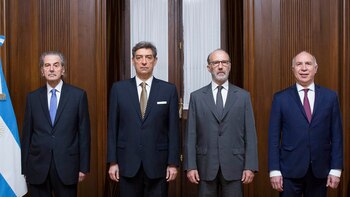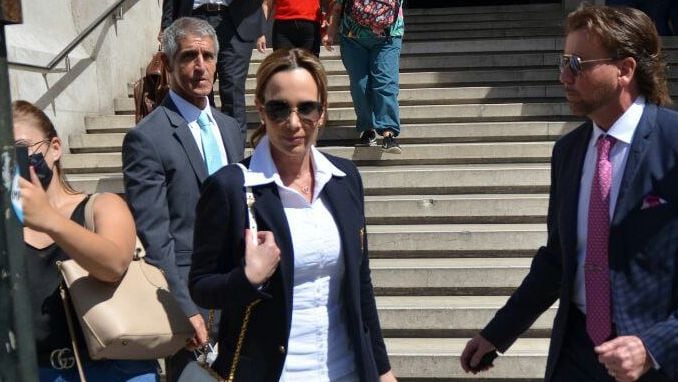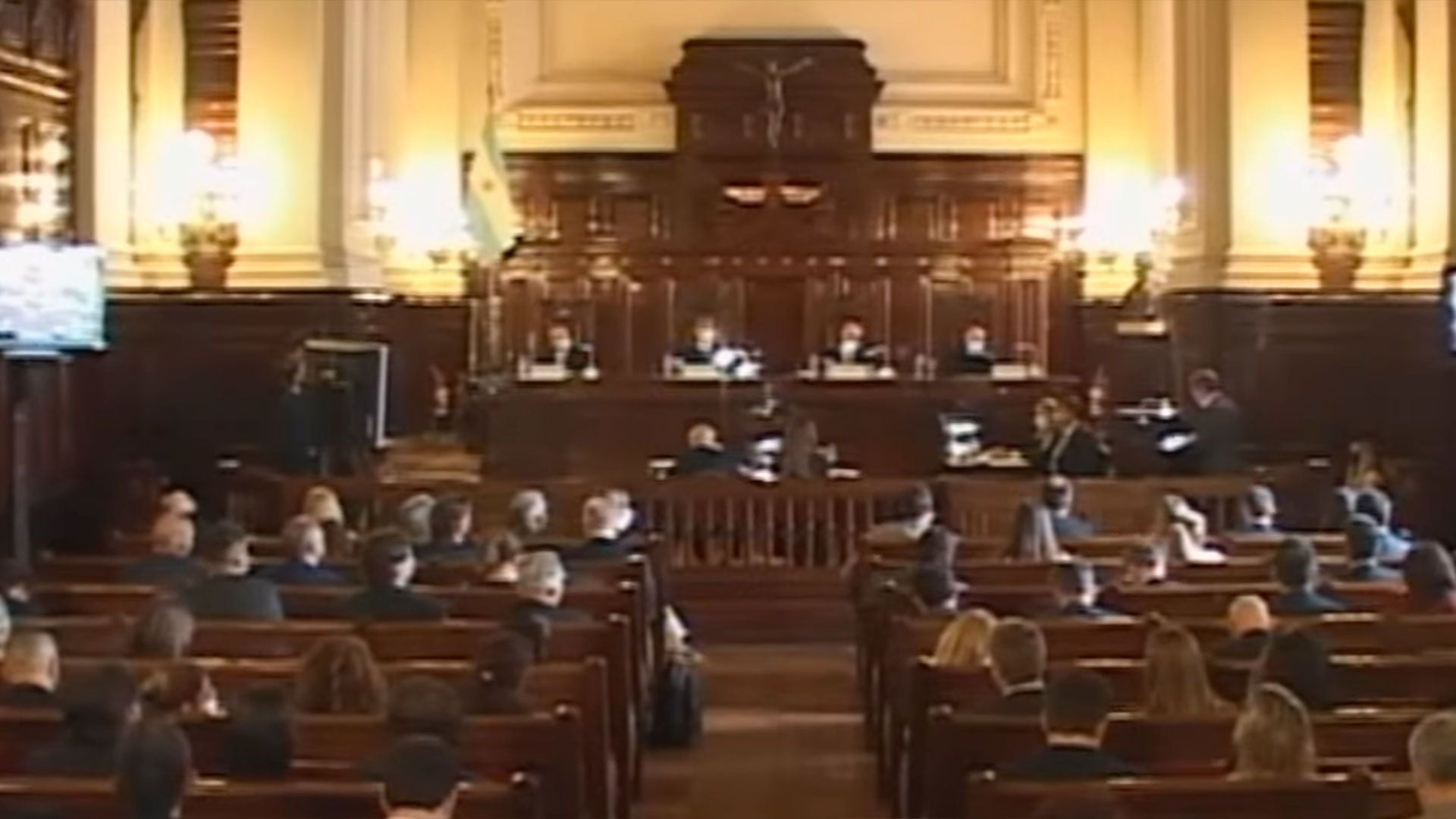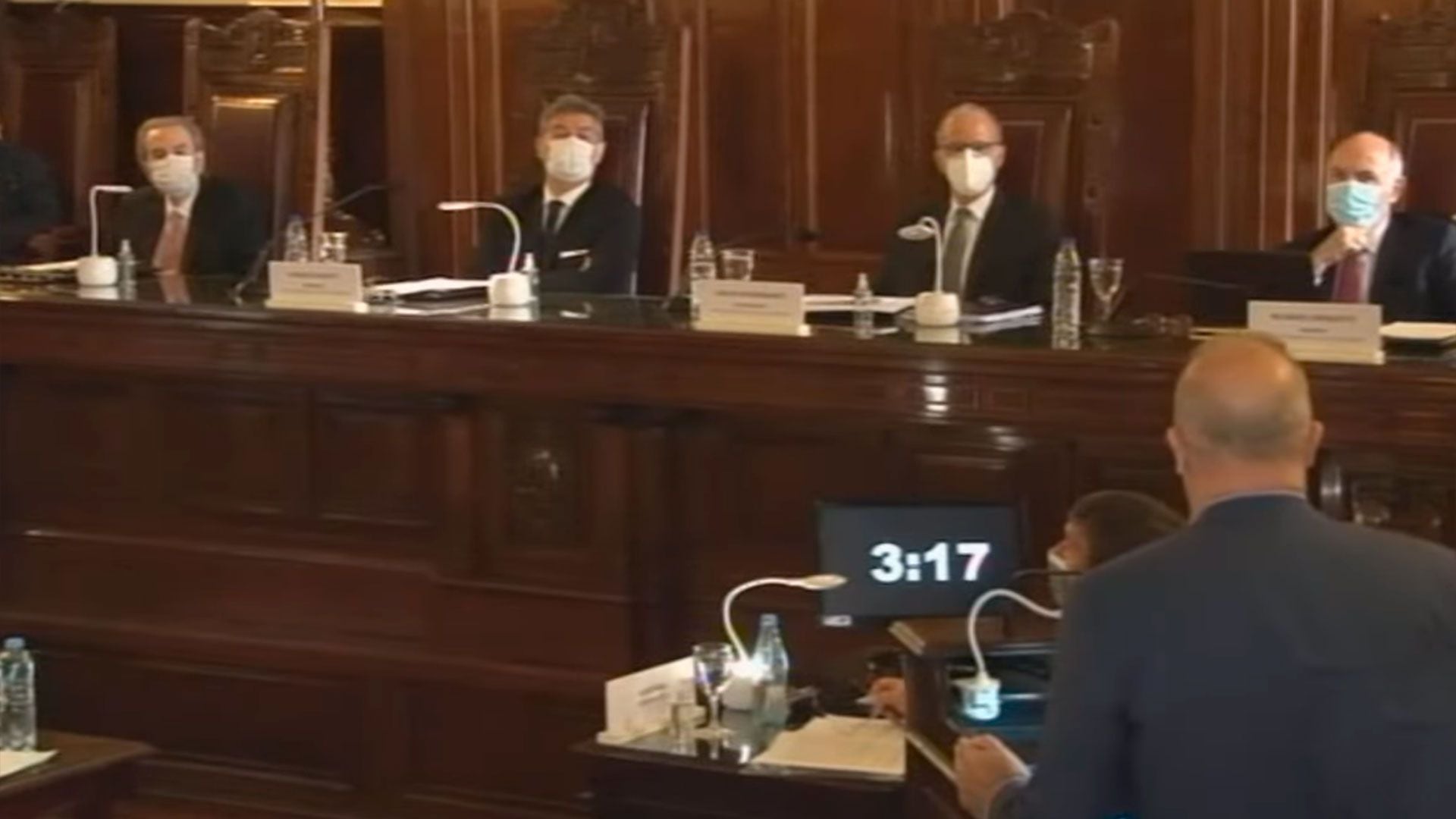
Last Friday, the second day of the Supreme Court hearing was held in the case of Natalia Denegri against Google for the right to be forgotten. On this occasion, the Public Prosecutor, Victor Abramovich and the lawyers of the parties presented.
The case was initiated by a complaint by Denegri who asked the Justice to order the search engine to remove links to sites displaying information about his media past related to the Cóppola case. In his complaint, he had requested that URLs that redirect to certain videos and news related to the case be blocked because he believed they were harmful, old, irrelevant and unnecessary. In founding his request, he claimed the so-called “right to be forgotten” because, according to his point of view, they were currently without public interest as a result of the passage of time, in addition to considering that they were harmful to his honor, his privacy and his reputation.
In the first instance, Judge Hernán Pagés partially upheld the complaint by ordering Google to remove links to Denegri's videos on television programs at the time of the Coppola case. The magistrate said on that occasion “I consider that such videos, as soon as they show scenes whose timely relevance was clearly linked more to the grotesque than to the informative, lack journalistic interest”. This ruling was confirmed by Chamber H of the Civil Chamber.

For its part, Google - in responding to the complaint - affirmed that the right to be forgotten was not applicable because there was no specific regulatory regulation; and because it was detrimental to the right to information, because it constituted a case of indiscriminate censorship and allow, in the future, anyone who is uncomfortable with facts of is in a position to request its deletion. It also held that this case differs from the “Costeja” case - invoked by Denegri - of the Court of Justice of the European Union, since here the information that is intended to be eliminated is true, complete, consented and related to facts of public interest. Finally, he noted the importance of the right to seek and obtain information, especially in cases of public interest.
The first to present last Friday morning was the Prosecutor Víctor Abramovich, who stressed that this case “presents a relevant and at the same time a novel constitutional problem. Search engine services play a decisive role in the global dissemination of information.” And he considered that the case must be framed within the framework of constitutional guarantees that protect freedom of expression adapted to the digital environment. He also stressed that internet users have the right to seek and access information and emphasized that this right is more intense when “we are dealing with information that is in the public interest.”

After Attorney Abramovich, Denegri's lawyers presented their arguments in favor of the claim promoted. At the end of the presentation, the Ministers of the Court asked several questions. The first to question the complainant was Carlos Rosenkrantz, who asked him if his right to privacy or honour was affected, why did he not request the total deletion of the information and videos and only asked that access be made difficult?
In turn, Juan Carlos Maqueda asked him - considering that Denegri has successfully developed a career in the United States - to indicate in what aspect of his life the publication of information that he intends to be removed from search engines has affected. Maqueda also asked the lawyers what is intended to be protected by establishing a right to be forgotten with respect to information about Denegri.
Ricardo Lorenzetti then tried to clarify certain technical issues in order to clarify the claim of the complainant and to be able to give a legal framework to the case. “If the Court upholds the House's decision, the consequence would be that everyone - in this case but in later cases - could ask for the deletion of videos with grotesque content,” Lorenzetti said, adding, “this implies a very relevant consequence because we would affect an entire category of art.”

In response to the minister's consultation, Denegri's lawyers doubted when answering whether honour or privacy was the protected legal asset. According to Lorenzetti, this is relevant, since if it is about honour or privacy, the legal framework is not related to the right to be forgotten, but rather it is an action to prevent damage, typical of private law, which seeks to avoid future harm. Therefore, we could be faced with a so-called “common law” case, in which the Court usually does not intervene. In addition, the actor hinted that most of the URLs have already been blocked, so the action could be close to being abstract.
Finally, Horacio Rosatti questioned the actor so that she could explain what the legal elements would be in order to differentiate what is relevant from what is not relevant.
At the time of the defendant's presentation, in the same order of questioning, Judge Rosenkrantz consulted Google regarding the possible impairment of Denegri's right to privacy under the rules of the National Constitution.
For his part, Maqueda asked the lawyers for the lawsuit whether there is a form similar to that in Europe in Argentina in order to be able to exercise the right to be forgotten. What would be the harm Google exposes to freedom of expression if the information and videos are still published.
As for Minister Lorenzetti, he focused his questioning on the capacity of the defendant company to weigh down various URLs in the face of individual claims. Along these lines, Google admitted to having restrictive policies (such as terrorism, child pornography, among others) and having the technical ability to disable certain URLs. Therefore, according to the minister, if the company considers that honor is affected, it can delete the URL without affecting the right to freedom of expression and without the need for recourse to justice.
Finally, Rosatti ended the questioning by asking whether the company has gender-specific policies and issues relating to the chronological order of results.
The hearing left several questions regarding the complainant's claim that could be a stumbling block in applying the right to be forgotten at the time of sentencing. With regard to Denegri's claim - as a result of his expressions - his claim seems limited to civil issues of common law - preventive action against harm regulated in the Civil and Commercial Code of the Nation - and not to a constitutional question concerning the right to be forgotten. Wanted or not by his lawyers, there was a turning point in what Denegri intended in his claim, a circumstance that would otherwise seal the fate of the lawsuit.
On the Google side, it became clear that the company has the ability to evaluate the possibility of unsubscribing certain URLs at the request of individuals if the honor is affected. However, in this case it was not raised by the complainant in this way, but invoked the right to be forgotten, a position that Google considered not applicable to this case.
Últimas Noticias
Debanhi Escobar: they secured the motel where she was found lifeless in a cistern

The oldest person in the world died at the age of 119

Macabre find in CDMX: they left a body bagged and tied in a taxi
The eagles of America will face Manchester City in a duel of legends. Here are the details

Why is it good to bring dogs out to know the world when they are puppies




